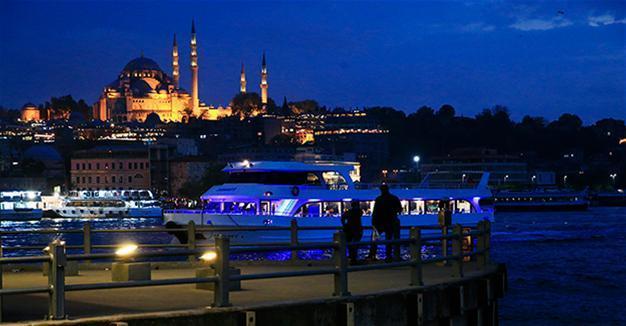Turkey loses spot to Indonesia in giant Muslim travel market: Index
JAKARTA

AP photo
Turkey has dropped one spot to fourth among top performing destinations of a sector expected to be worth $220 billion by 2020, according to the Global Muslim Travel Index 2017 released by Mastercard and CrescentRating in Jakarta on May 3.
The index saw Turkey lose its position behind Malaysia, which kept the top spot, while Indonesia moved up to third place in the overall rankings.
The study, which covers 130 destinations, showed a number of non-Organization of Islamic Cooperation (OIC) destinations in Asia move up the rankings, a result of the concerted effort to adapt their services to cater to and attract the Muslim travel market.
Singapore retained its pole position among the non-OIC destinations, with Thailand, the U.K., South Africa and Hong Kong rounding up the top five. Japan moved up two places to take sixth spot with Spain entering the top 10 for the first time.
The study showed that the Muslim travel market will continue to grow at a fast pace with the sector estimated to grow to $220 billion in 2020.
It is expected to grow a further $80 billion to reach $300 billion by 2026, according to the study.
It was also revealed that in 2016 there were an estimated 121 million Muslim visitor arrivals globally – up from 117 million in 2015 – and is forecasted to reach 156 million visitors by 2020 representing 10 percent of the travel segment.
Asia has remained the leading region in the world in terms of attractiveness to Muslim tourists with an average index score of 57.6, with Africa coming in second place at 47.0, followed by Oceania at 43.8, Europe at 39.9 and the Americas at 33.7.
Fazal Bahardeen, CEO of CrescentRating & HalalTrip, said the index continues to reveal detailed insights that will assist destinations in better understanding the shifting needs of the segment.
“We are definitely seeing the influence of a new breed of young travelers, millennials and Generation Z, who are combining technology with a real desire to explore the world while still adhering to their faith-based needs,” he said.
“They will be the driving force for the next phase of growth which destinations like Turkey will have to embrace and implement measures accordingly to make progress in the rankings going forward,” he added.
“These younger travelers want greater choice, unique experiences and constant connectivity which can be seen with the growth of other Muslim lifestyle segments such as Halal food and modest fashion which link perfectly with the travel market. As Muslim travel continues to diversify, keeping on top of the demographics of the travelers though these insights from the GMTI will be paramount for destination management teams and decision makers who are ultimately sourcing solutions for this market,” he said.
Safdar Khan, the division president of Mastercard in Indonesia, Malaysia and Brunei, said that with an overall expenditure of around $155 billion in 2016, the Muslim travel market remains a strong driver for the continued growth in travel across the world.
“It’s constantly evolving with major forces such as changing demographics and digitization shaping the way the industry is progressing,” Khan said.
“Technology for example is improving the experiences of Muslim travelers every step of the way from the planning phase to the experience phase and the sharing phase. There is a huge opportunity for service providers to innovate and adapt their offerings to cater to the unique needs of this segment at each of these phases across multiple touch points,” Khan added.
